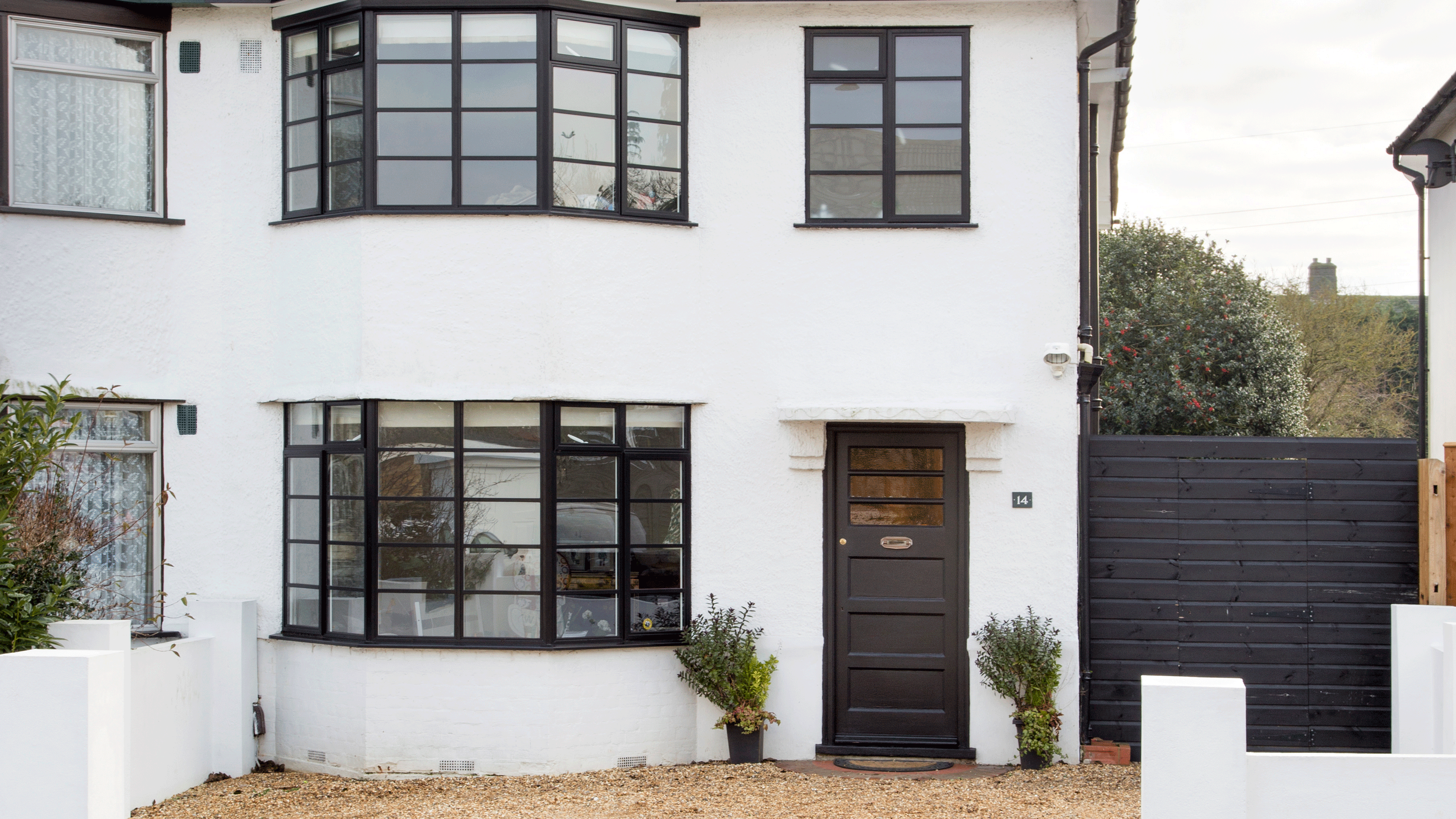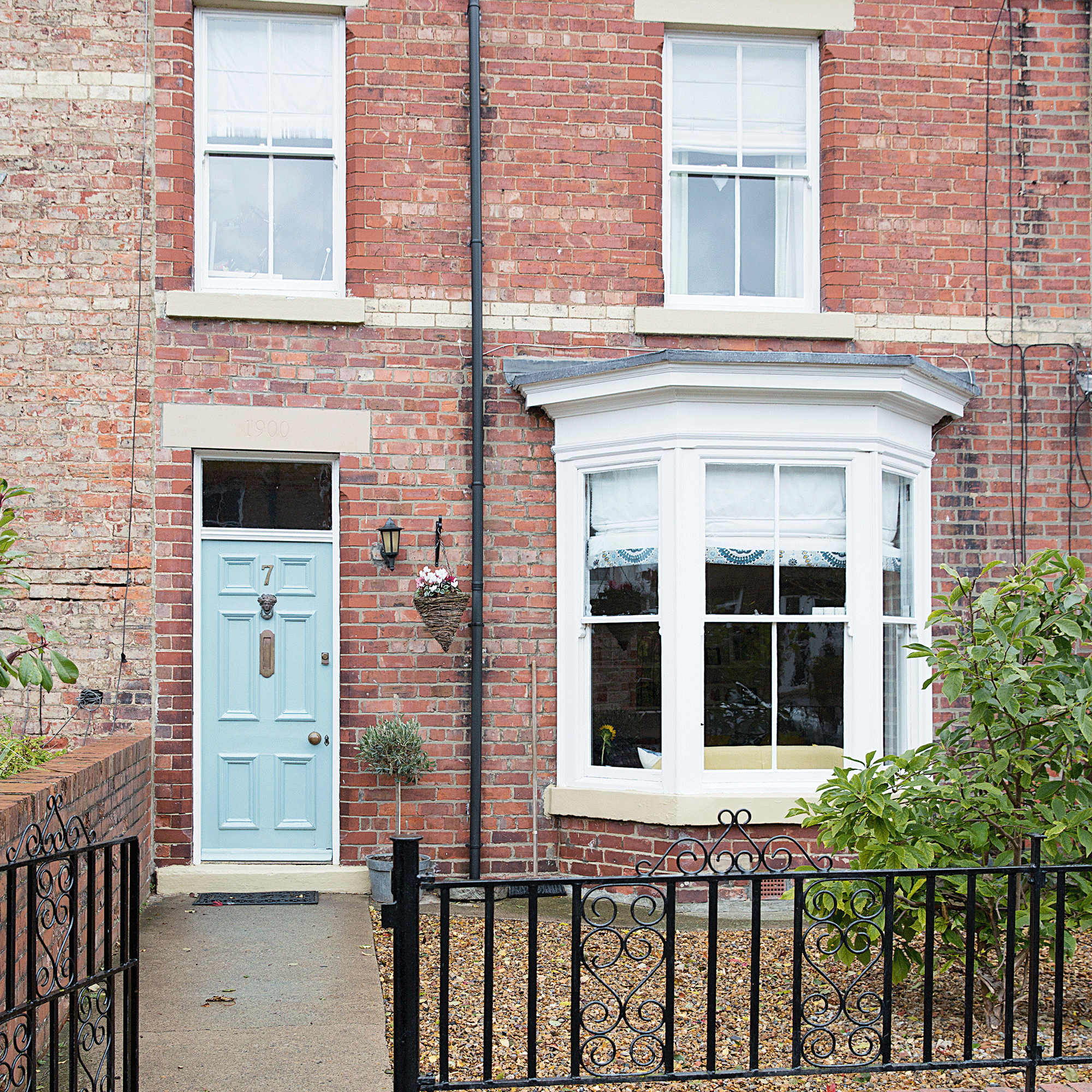Best remortgage deals from 3.99% for April 2025
If your mortgage rate is soon to expire here are some of the best remortgage deals on the market, expert hints on when to switch and tips for choosing your next deal

Emma Lunn
Recent updates
This article has been updated to show new remortgage products and updated rates. It has also been fact-checked and any out of date information removed.
If your mortgage rate is soon to expire here are some of the best remortgage deals on the market, expert hints on when to switch and tips for choosing your next deal
When it comes to remortgage deals, fixed rates have edged down in recent weeks as lenders priced in the much-anticipated cut to the Bank of England base rate which finally took place this month.
After seven months, the Bank of England cut the base rate from 5.25% to 5%. Most five-year fixed rates are still cheaper than two-year deals and opinions on whether the base rate will fall further this year differ. Mortgage rates are not expected to fall to the lows we have seen in the past but brokers hope to see more deals start with a four instead of a five.
Before you jump into your next mortgage deal, it is important to understand how the process works and take advice from a mortgage broker.
Thousands of homeowners will be bracing themselves for a mortgage rate shock if they’re due to remortgage this year. If you're coming off an affordable fixed-rate mortgage in 2024, your new mortgage is likely to cost more than your current one. The reason for this is that mortgage rates are much higher than deals seen in previous years.
For example, in July 2022, someone remortgaging with a 40% deposit could get an average two-year fixed rate of 3.64%, according to data firm Moneyfacts. Two years on and the equivalent deal costs 5.28%.
While some homeowners will be wondering whether they should fix their mortgage, and for how long, it's important they get advice tailored

Best remortgage deals in April 2025
Rates are correct at the time of writing and are for illustrative purposes. Speak to your lender or mortgage broker to find the best deal for your specific circumstances.
NATIONWIDE 40% DEPOSIT TWO-YEAR FIX
Specifications
Early repayment charges apply. No valuation costs. £500 cash back or choose free legal work instead. Minimum loan is £300,000.
SANTANDER TWO-YEAR TRACKER AT 60% LTV
Specifications
No early repayment charges apply. No valuation costs. £250 cashback on completion.
Your mortgage rate tracks the Bank of England base rate, currently 4.5%, by +0.10 percentage points. Your rate can go up or down within the term of your deal. You can choose to leave at any time without paying a penalty.
HSBC SUB 4% FIVE-YEAR FIXED RATE
Specifications
Early repayment charges apply. No valuation costs. Free legal work. Only available through a mortgage broker.
CLYDESDALE 20% FEE-FREE FIVE-YEAR FIX
Specifications
Early repayment charges apply. This deal comes with a free valuation, free legal work and has no arrangement fee. Only available through a mortgage broker.
VIRGIN MONEY SHORT TERM FIX AT 85% LTV
Specifications
Early repayment charges apply. No valuation costs and free legal work.
HALIFAX TWO-YEAR TRACKER AT 85% LTV
Specifications
No early repayment charges apply. No valuation costs and free legal work. A minimum loan restriction of £75,000 applies. Only available through a mortgage broker.
You can also use our mortgage calculator for guidance on how much you could borrow:
When should you start looking for your remortgage deal?
You don’t need to wait until your fixed rate ends before you start hunting for a remortgage deal. You can start looking for a new remortgage deal up to six months ahead of your old one expiring.
You can reserve the rate in advance and proceed with the remortgage process but hold off your completion until the day after your deal expires. That way you’ll avoid moving on to your lender’s more expensive standard variable rate at all.
If there are lower rates available from your remortgage lender by the time you come to switch deals you can usually ditch the one you reserved and grab the cheaper one without losing any money.
Check what rates your existing lender is willing to offer you. They often reserve exclusive, cheaper rates for their own borrowers and some lenders will let you switch to a cheaper rate six months before your old one ends, penalty free.
How to find the right remortgage deal for your circumstances
To get the best mortgage deal, you need to compare rates and get your calculator ready to do some sums. You can search online for the best remortgage rates using a price comparison website, such as our sister brand Go.Compare. By submitting basic details such as your annual salary, how much your home is worth and how much you want to borrow, you’ll find the best remortgage deals.
‘When thinking about the type of deal to take, homeowners should consider how long they expect to live in the property,' says Chris Sykes, technical director, Private Finance. 'If you plan to move in a few years, it will be costly to exit a five- or 10-year fixed rate early. Borrowers should also consider if they need security over their monthly budget which will determine if a fixed or variable rate is most suitable.’
Mr Sykes says borrowers should also think about whether they’re likely to receive a cash boost soon; a bonus at work or an inheritance that they may want to use to pay off some of their mortgage. In this case, a variable rate that does not have penalties for making large overpayments could be suitable.
Many mortgage deals will apply charges if the mortgage is repaid within the deal period or if you exceed the limit of overpayments that can be made in a year. Most lenders restrict you to 10% overpayments a year.
And don’t assume your loyalty to your bank will be rewarded with the best rate.
Always shop around before taking an offer from your existing mortgage lender. Although your current bank can sometimes offer you a lower rate than other lenders, it may not be the cheapest deal on the market or the best decision for your circumstances.
Ask a broker to search the whole market for you to compare rates with your lender’s offer. They can reassess your circumstances at the same time to find if you need any extra finance, want to change your mortgage term or repay a lump sum before locking in to a new deal.
Brokers also caution borrowers against waiting to remortgage in case rates fall further. When you deal expires, you’ll be moved onto your lender’s default interest rate called the Standard Variable Rate (SVR) which is a lot more expensive.
Mr Sykes says: ‘A few months on your lender’s SVR could cost hundreds or thousands of pounds if you have underestimated the time it takes to complete a remortgage.’

How to work out how much you will have to repay
You’ll need a calculator to work out the best remortgage deal. Add together the monthly payments for the length of time you are tied in for (normally the duration of a fixed rate) then add the product fee, and minus any cashback.
For example, if you wanted to borrow £200,000 on a five-year fixed rate at 4.22% over 20 years with a £999 fee, it would cost you a total of £75,099 over five years (60 monthly payments of £1,235 plus £999).
You should do the same calculation for other deals you’re considering, then compare the total figures.
When looking at remortgage deals, you’ll need to understand your loan-to-value (LTV). This is how much of your property’s value you need to borrow as a mortgage. When you remortgage, the ‘deposit’ required is actually the equity in your property.
For example, if your house is valued at £200,000 and you need to borrow £150,000, this means you have a deposit/equity of £50,000 (25%) and you can apply for remortgage deals with a maximum LTV of 75%. The higher the proportion of equity you have in your home, the cheaper your rate will be.
Property values have risen significantly over the past two years. The more equity you have in your home the cheaper your rate will be. Make sure you get an up-to-date valuation to make sure you’re unlocking cheap rates that you may now be eligible for.
Get the Ideal Home Newsletter
Sign up to our newsletter for style and decor inspiration, house makeovers, project advice and more.
Samantha Partington is a personal finance journalist specialising in mortgages and the property market.
Over the past nine years, Samantha has worked for the Daily Mail, trade website Mortgage Solutions and business title Property Week. She regularly writes for national money pages including Money Mail and Sun Money and supports prop tech firms with content writing.
You must confirm your public display name before commenting
Please logout and then login again, you will then be prompted to enter your display name.
-
 This £200 limited-time discount makes this Dyson vacuum cheaper than I’ve ever seen it - run don’t walk to Argos for this bargain
This £200 limited-time discount makes this Dyson vacuum cheaper than I’ve ever seen it - run don’t walk to Argos for this bargainIt's the most affordable Dyson on the market right now
By Lauren Bradbury
-
 Martin and Shirlie Kemp’s pastel flower beds has given their Victorian renovation a romantic look - how you can get the look
Martin and Shirlie Kemp’s pastel flower beds has given their Victorian renovation a romantic look - how you can get the lookTheir pastel garden is the cottage garden inspo you've been looking for
By Kezia Reynolds
-
 7 outdated rules to ignore when designing a small patio – experts say ditching them will transform your space
7 outdated rules to ignore when designing a small patio – experts say ditching them will transform your spaceThese are the traditional patio design rules you don’t always need to follow
By Rebecca Lawton
-
 You can claim back over £300 a year from HMRC if you work from home - here’s how to check if you’re eligible
You can claim back over £300 a year from HMRC if you work from home - here’s how to check if you’re eligibleWhen it comes to saving, every little helps
By Kezia Reynolds
-
 Experts have revealed the best day to renew your home insurance policy - you’ll want to do it sooner rather than later
Experts have revealed the best day to renew your home insurance policy - you’ll want to do it sooner rather than laterDon't leave this task at the bottom of your to do list
By Kezia Reynolds
-
 Is a variable rate mortgage ever a good idea? Experts weigh in
Is a variable rate mortgage ever a good idea? Experts weigh inOur money expert explains what a variable rate mortgage is, who they can be good for, and the pros and cons of this kind of mortgage
By Samantha Partington
-
 I’m a first-time buyer, what are my chances of getting a mortgage right now?
I’m a first-time buyer, what are my chances of getting a mortgage right now?And what you can do to increase your odds
By Rachel Wait
-
 Should you ever pay above the asking price for a home?
Should you ever pay above the asking price for a home?Our money expert explains whether you should ever pay over the asking price for a home, especially if house prices fall as predicted
By Samantha Partington
-
 Should I fix my mortgage and how long should I fix for?
Should I fix my mortgage and how long should I fix for?We speak to the experts to find out whether you should fix your mortgage and how long for as well as the impact further interest changes could have on your decision
By Samantha Partington
-
 We put your mortgage questions to two leading experts, here's what they said
We put your mortgage questions to two leading experts, here's what they saidAs mortgage panic continues, we've answered the most common questions - from when mortgage rates will come down, to when you actually have to pay stamp duty
By Samantha Partington
-
 'My mortgage is set to skyrocket - what should I do?' 5 potential solutions from a money expert
'My mortgage is set to skyrocket - what should I do?' 5 potential solutions from a money expertIf you're facing higher mortgage costs, our money expert explains various courses of action you could take to ease the pressure
By Samantha Partington